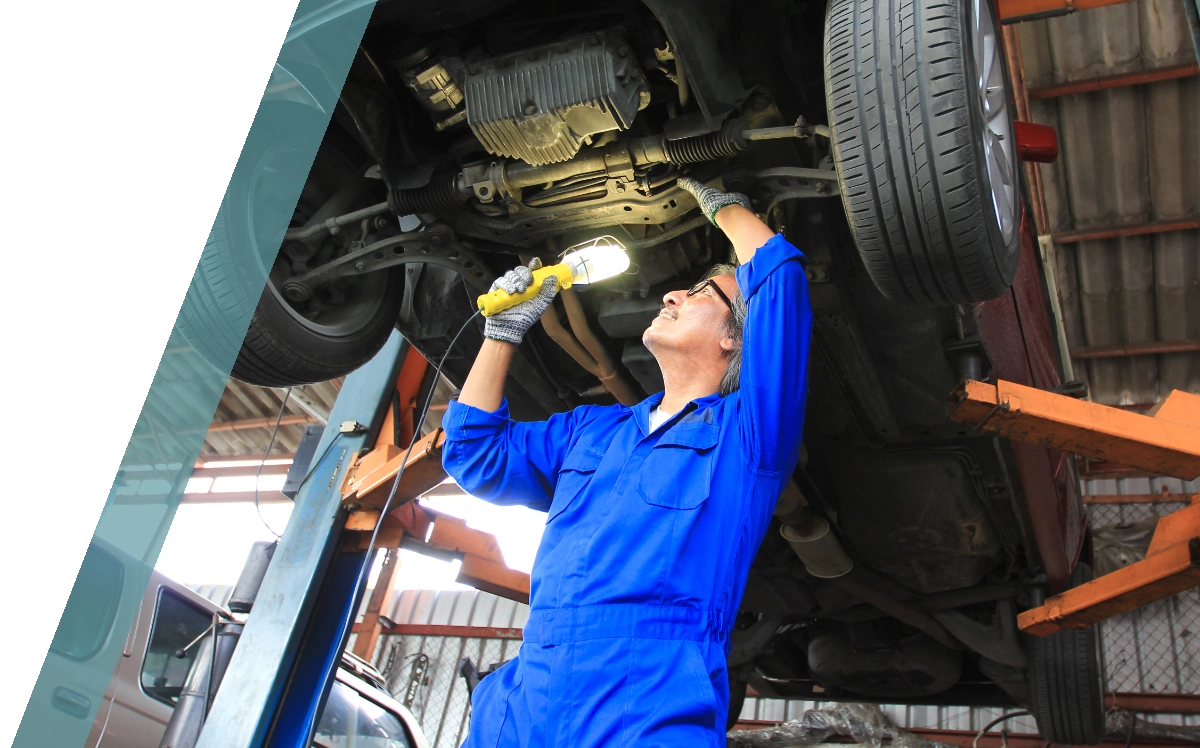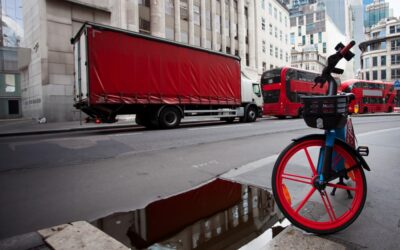Motor Trade Insurance and Mechanics Insurance
Specialist insurance for motor mechanics and others working in the motor trade, operating out of a garage or specialist motor trade premises

If your work involves buying, selling, servicing, or handling vehicles of any kind, then you need a specialist motor trade insurance policy to cover you for the specific risks you face in your industry.
At Anthony Jones, we can help you get specialist cover at a competitive price. We’ll take the time to get to know you and your motor trade business, so that we can build a bespoke policy that meets all your needs.
Who Needs Motor Trade Insurance?
Motor trade insurance is for any business involved in motor trade activities, whether full-time or part-time:
-
- Mechanics
- Vehicle customisation specialists
- Transit and logistics companies
- Window tinting specialists
- Valet services
- New or used car dealerships
- Service and repair garages
- MOT stations
- Mobile mechanics
- Tyre and exhaust fitters
What Insurance Does a Mechanic Need?
Mechanics of all kinds need a dedicated public liability insurance policy, which includes service indemnity cover.
Your customers trust you to make their vehicles safe and roadworthy. If something goes wrong following a service or repair that you carried out, or if your customer is simply dissatisfied with your work, then they might make a claim against you. In this case, mechanic public liability insurance can cover any legal fees or compensation that may arise as a result of the claim.
Mechanics should also consider getting tools insurance, to cover your equipment in case it’s ever lost, stolen, or damaged. Depending on the nature of your business, you may also need road risk insurance. This can cover you for driving your customers’ cars to and from their home and your garage.
What is Included in Motor Trade Insurance?
There are many different types of motor trade insurance policies, and we can tailor your policy to meet your specific needs. Your motor trade insurance policy might include the following forms of cover:
- Public liability insurance, including servicing indemnity cover
- Employer’s liability insurance
- Road risk insurance
- Business van insurance (for mobile mechanics)
- Tools and equipment cover
- Buildings insurance
- Business interruption insurance
- Personal accident and injury cover
- Legal expenses insurance
Do I Need Motor Trade Insurance?
You are required by law to get some forms of insurance cover. For example, if you employ any staff, then you have a legal duty to get employer’s liability insurance. And as it’s illegal to drive vehicles on UK roads without insurance cover, if your business involves driving customers’ cars, you will need road risk insurance.
But even beyond your legal and regulatory requirements, no motor trade business or mechanic should be without comprehensive insurance cover. If a customer ever makes a claim against you, you may need to pay extensive legal fees, or even some compensation. Your insurance could cover these expenses, along with your own legal fees.
Also, if your tools or equipment is ever lost, stolen, or damaged, then your insurance could cover any necessary repairs or replacements. In this way, and in many other ways, your insurance can help keep you afloat, no matter what happens. But without adequate insurance cover, even the smallest setback could ultimately sink your business completely.
Get Specialist Motor Trade Insurance and Mechanics Insurance from Anthony Jones
We understand how difficult it can be to get the cover you need when you’re working a specialist trade. Off the shelf policies may come with gaps in the cover, or they may make you pay excessively for cover you don’t need.
Talk to us, and we’ll take the time to get to know you and your motor trade business. We can then help you find a specialist mechanics insurance policy that will meet all your needs at an outstanding price.
Need more
information?

Please call John Donaghy or the team on 020 8290 9099 to see how we can help you with your motor trade and mechanics insurance. Alternatively, you can email us at cm@anthonyjones.com
“I have used Anthony Jones for almost 10 years for my businesses. I couldn’t recommend them highly enough, and I regard them as one of our most indispensable suppliers. I feel they have found not only the best value deals for us, but ones that fully protect us as a business. They are honest, reliable, professional and a pleasure to work with.”
Chris Walthew
Owner/MD Walthew Leisure Ltd
FAQ’s
Some of our most asked questions, answered below:
When would I need Commercial Vehicle insurance rather than Car insurance?
If you have a company and have vehicles that you use within the business, then you need Commercial Vehicle insurance. The vehicles you own might include those which are obviously commercial vehicles, such as lorries, vans and forklift trucks. But company cars are also classed as commercial vehicles and should be covered by Commercial Vehicle insurance. Private car insurance will not include cover for company-owned cars.
When would I need Fleet insurance rather than Multi-Car insurance?
Multi-Car insurance can be used to cover a number of privately-owned cars used for personal use, perhaps incorporating a bit of business use, such as commuting, too. However, Multi-Car insurance can’t be used to cover company cars. For this, you’ll need Fleet insurance. If you want to insure fewer than 5 or 6 company cars or other commercial vehicles, you can protect them with a Mini-Fleet insurance policy.
What is Goods in Transit insurance?
Goods in Transit insurance (GIT insurance for short) is also often referred to as Cargo insurance. As the name suggests, this insurance covers goods (which includes everything from food to furniture, building supplies to cars, and machinery parts to animals) which are being transported from one place to another. Goods in Transit insurance protects your goods in case they are damaged or lost while they are being transported by road, air, rail or sea.
HGV Medical: What is Involved & When Is It Due?
At Anthony Jones we have created an online resource to answer your questions at your convenience. Simply browse a category to find FAQs relating to that section.
Reviews

Straightforward, thankyou
Stephen Passfield is our account handler is one of the best agent we've worked with.
He is very helpful,kind and flexible to us and always there for us.
We've couldn't asked for more.
Thank you much for help for whole these years.
We really appreciate and very grateful to you.
We highly recommend him and his team
TM Brothers Transport
Their agents always very kind, flexible and helpful.
I highly recommend them.
"I chair a campaign to save our local pub. We launched a share sale and succeeded in buying the Crown a few days ago, so we needed help in selecting the right insurance for the site whilst renovations were under way, including unoccupied property cover. Tony Ellis of Anthony Jones Insurance was really helpful in guiding us through this process, and we now have the correct cover in place. Fast, easy to deal with & knowledgeable - just what you need from your insurance broker! Well done Tony and all at A Jones."
News
Tyre Tread Depth Best Practice Policy For Fleets
In this post we’ll explore how to design an effective tyre tread depth best practice policy for your fleet. We’ll also look at some recent calls to increase the legal minimum tyre tread depth in the UK. As a fleet operator, you have a legal obligation to ensure that...
Taxi Insurance: Common Exclusions To Look Out For
Taxi insurance can cover you, your drivers, and your fleet of vehicles for a range of risks. But as with all types of cover, taxi insurance policies will usually specify certain exclusions. In this post we’ll list some common exclusions to look out for, to help you...
What Does Truck Breakdown Cover Include?
Truck breakdown insurance can cover the expenses you may occur should your HGV break down. In this post we’ll outline what truck breakdown insurance covers, along with some of the limits to the cover. At Anthony Jones, we can provide a level of breakdown cover as part...
London Lorry Control Scheme (LLCS) Amendments & Crackdown
The London Lorry Control Scheme (LLCS) prohibits HGVs over 18 tonnes from using residential roads at certain times. In this post we’ll look at some recent amendments London Councils made to the scheme, along with the penalties you may face for not abiding by the...




